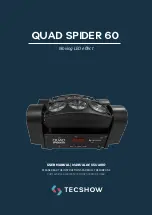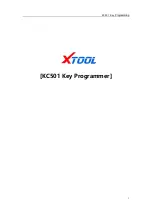
17
© G
ul
dm
an
n 08/2016 # 900676_4
© G
ul
dm
an
n 08/2016 # 900676_4
Is the sling’s label present, legible and complete?
Missing, illegible or incomplete sling label(s) could make identification of
appropriate size of the sling, function of sling, and or weight limit capacity of
the sling impossible.
Are the lifting straps and stitches intact?
• Look for broken or worn stitches
• Look for knots in straps
• Look for tears or fraying of straps
• Look for snags or punctures or holes
• Look for any particles in fabric or straps
•
Is the fabric intact?
• Look for abnormal wear patterns, excessive wear, abrasive evidence
• Look for cuts or frayed fabric
•
Look for unusual or significant discoloration
• Look for snags, punctures, tears, holes
• Look for frayed or insecure seams
• Look for any acid / caustic / thermal burns
• Look for changes in material consistency, e.g. increased stiffness
• Look for any imbedded particles
Are slings the original size and length without the use of knots, pins,
tape or other methods to change the shape, shorten or lengthen them?
Conclusion
If the sling suffers from one or more of the above mentioned conditions then
it must be taken out of service regardless of the weight of the person to be
lifted.
2 .03
Disposal of slings
Slings are disposed of by incineration. By proper incineration polyester
will be degraded to carbon dioxide and water.
3 .00
Service and lifetime
3 .01
Safety/service inspections
In accordance with international standard EN/ISO 10535 “Hoist for the
transfer of disabled persons – Requirements and test methods” an inspection
must
be performed every 6-month according to the following instructions,
which is not intended to represent all potential inspection steps. Potential
damage may vary. Judgment of inspector/site prevails.
Safe Operating Practices with Slings
Considerations for damaged or defective slings and taking them out of
service:
















































